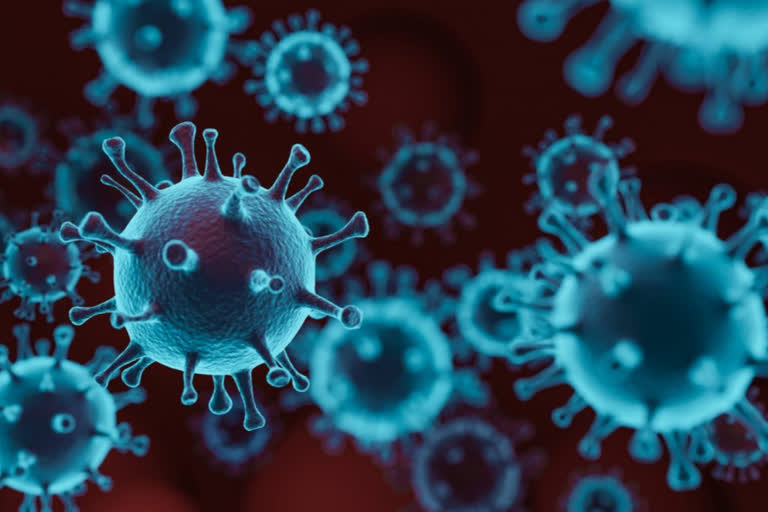New Delhi: Amidst the COVID-19 cases surge in India 'Nature Research' a renowned medical and science journal has found that non-pharmaceutical interventions (NPI) like lockdown, curfew, closing and restricting crowding for an extended period of time plays an important role to mitigate the spread of SARS-CoV-2.
"Post festive and winter surge of Covid cases is a matter of great concern. Measures which are found effective internationally are to cancel and restrict small gathering - crowded market place, meetings and functions of more than 50 people for an extended period. This is in addition to the universal usage of mask and social distancing. Even social meetings should be brief as much as possible," said Dr Tamorish Kole, president of Asian Society for Emergency Medicine in an exclusive interview to ETV Bharat on Wednesday.
The study compiled by Nature Research said that in the absence of vaccines and antiviral medication, non-pharmaceutical interventions implemented in response to (emerging) epidemic respiratory viruses are the only option available to delay and moderate the spread of the virus in a population. The study noted that Government interventions may cause substantial economic and social costs while affecting individuals behaviour, mental health and social security.
"Knowledge of the most effective NPIs would allow stakeholders to judiciously and timely implement a specific sequence of key interventions to combat a resurgence of COVID-19 or any other future respiratory outbreak. Because many countries rolled out several NPIs simultaneously, the challenge arises of disentangling the impact of each individual interventions," the study said.
Read: Pfizer COVID vaccine 95% effective, ready to seek emergency clearance
Asserting that NPIs does not act as a silver bullet on the spread of COVID-19, the study said that several decisive interventions significantly control in reducing the cases. The most effective NPIs include curfews, lockdowns, closing and restricting places where people gather in smaller or large numbers for an extended period of time, it said.
The study quantifies the impact of 6,068 hierarchically coded NPIs implemented in 79 countries on the effective number of COVID- 19. The study proposed a modelling approach that combines four computational techniques merging statistical, interference and artificial intelligence tools. The study also validates its findings with two external datasets recording 42,151 additional NPIs from 226 countries.
"The results indicate that a suitable combination of NPIs is necessary to curb the spread of the virus. Less disruptive and costly NPIs can be as effective as more intrusive, drastic, ones (for example, a national lockdown), it said. "While in previous studies, based on smaller number of countries, school closures had been attributed as having little effect on the spread of Covid19, more recent evidence has been in favour of the importance of this NPIs," the study said. Schools closure in the United States has been found to reduce COVID-19 incidence and mortality by about 60 per cent.



